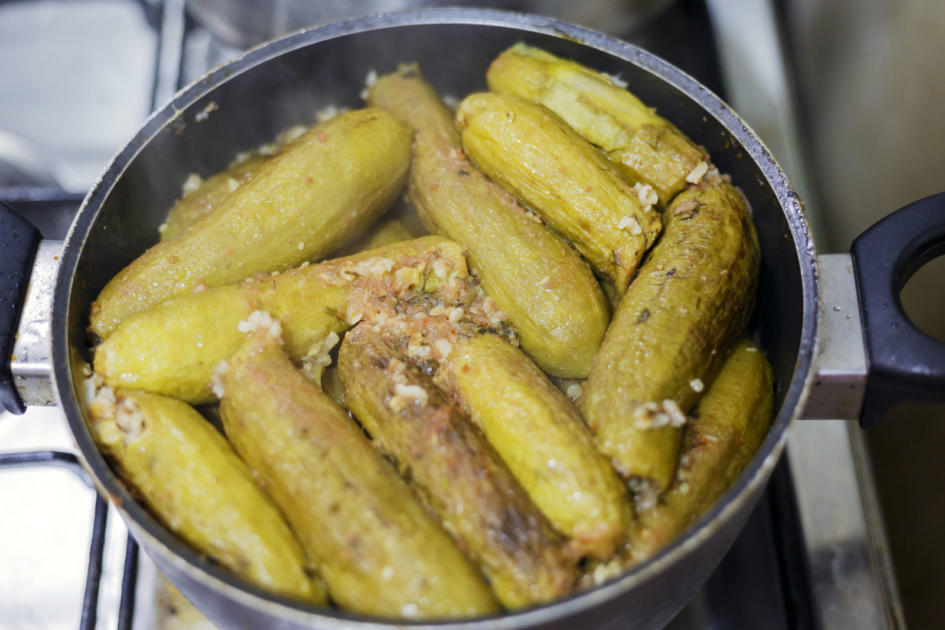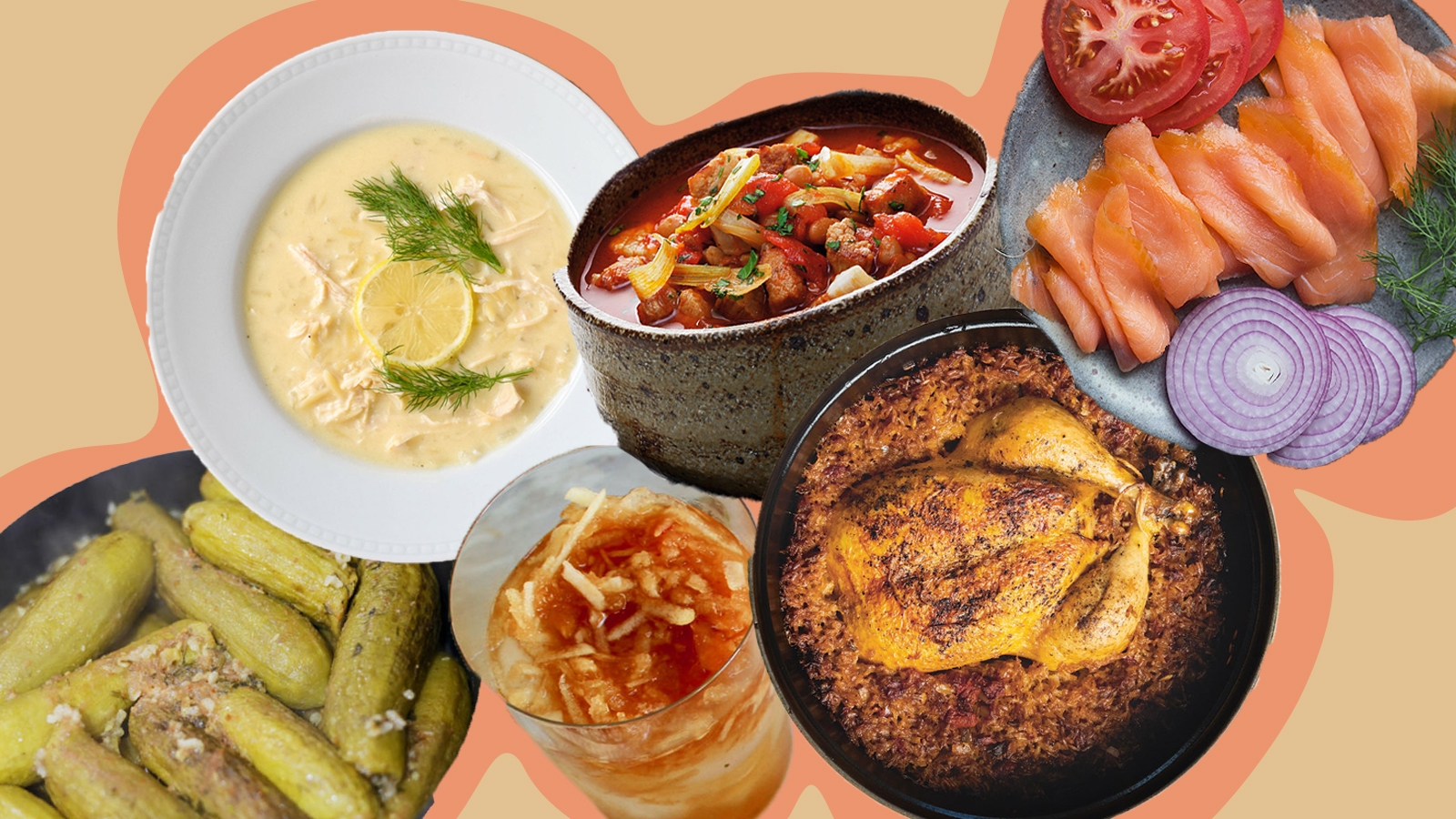Yom Kippur break fast has ballooned into a significant event in the American Jewish calendar over the past couple of decades. Hype has escalated, guests have increased, and menus have become more extravagant. But at the heart of this tradition is classic Ashkenazi fare: bagels, smoked fish, blintzes, and cake. 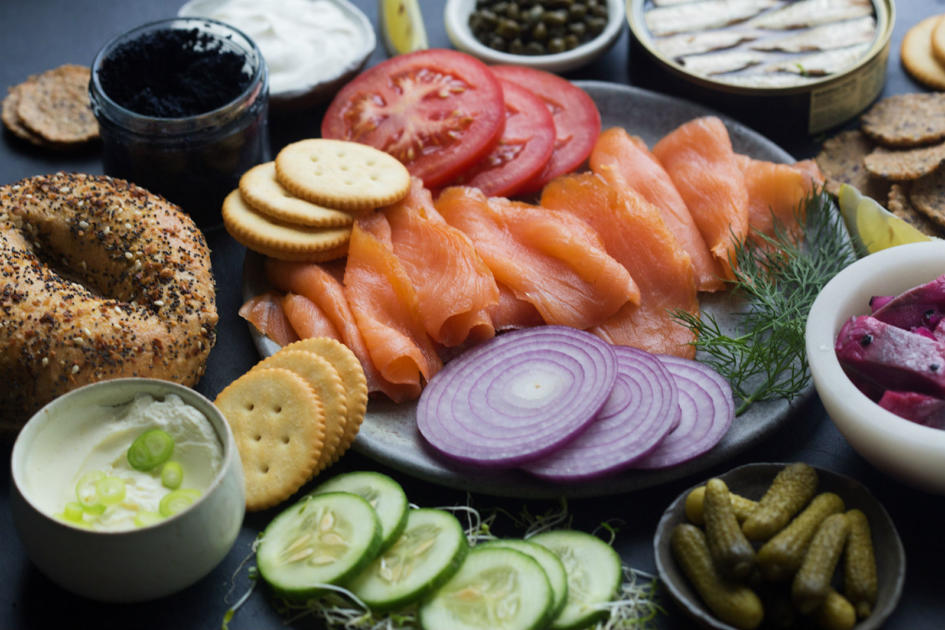
It’s the same sort of thing I grew up eating in the U.K., where my family’s Polish and Lithuanian roots dictated that we must bring in and break our fasts on fish. One of my most horrifying childhood memories is returning home from synagogue on Yom Kippur afternoon for a nap to find a huge glass jar on the porch housing whole, pickled herrings — heads and all — delivered by my grandmother for that evening.
We’ve added our own twist on break fast fare, influenced by our surroundings — cups of tea with milk alongside our cake, and marmite on our bagels. Correspondingly, a Costa Rican friend serves gallopinto (rice and beans) and platanos maduros (fried plantains) alongside her lox; another friend with roots in Baghdad’s Jewish community subs zimsterne for kakas (ring-shaped caraway cookies) and babas (stuffed date cookies).
Outside the Ashkenazi community, however, there are many very different, centuries-old break fast traditions that are tempting enough to ditch the bagels for. Read on to learn more about Yom Kippur break fast traditions from around the globe.
The Nosher celebrates the traditions and recipes that have brought Jews together for centuries. Donate today to keep The Nosher's stories and recipes accessible to all.
Iraq
Iraqi Jews know that you can’t beat a drink and bite of something sweet post-fast, turning to crumbly, date-filled cookies and hariri — a homemade sweetened almond milk that’s often flavored with cardamom. Once that’s settled in the stomach, many embark on a full-on meat meal, like t’beet — a stuffed chicken and rice dish flavored with a mix of warm spices that’s prepared pre-fast and cooked low and slow until Yom Kippur is over.
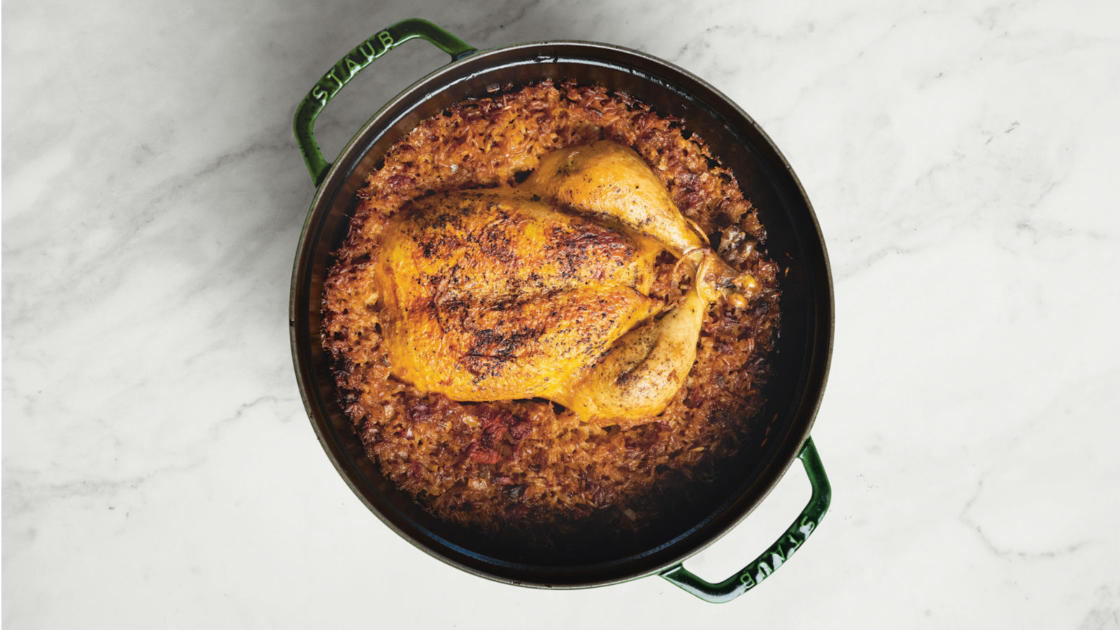
Morocco
Instead of coffee, Moroccan Jews opt for mint tea accompanied by marzipan cookies or fijuelas, fried pastries dipped in sweet syrup, before diving into a break fast feast. Many prepare a hearty tomato-based soup called harira, featuring chickpeas and/or lentils, lemon, cilantro, and often chicken or beef. Others turn to traditional Shabbat dishes like dafina (or skhina), Morocco’s cholent equivalent, flavored with saffron and stuffed with all kinds of delights – marrow bones, chickpeas, eggs, meatloaf, rice, the list goes on!
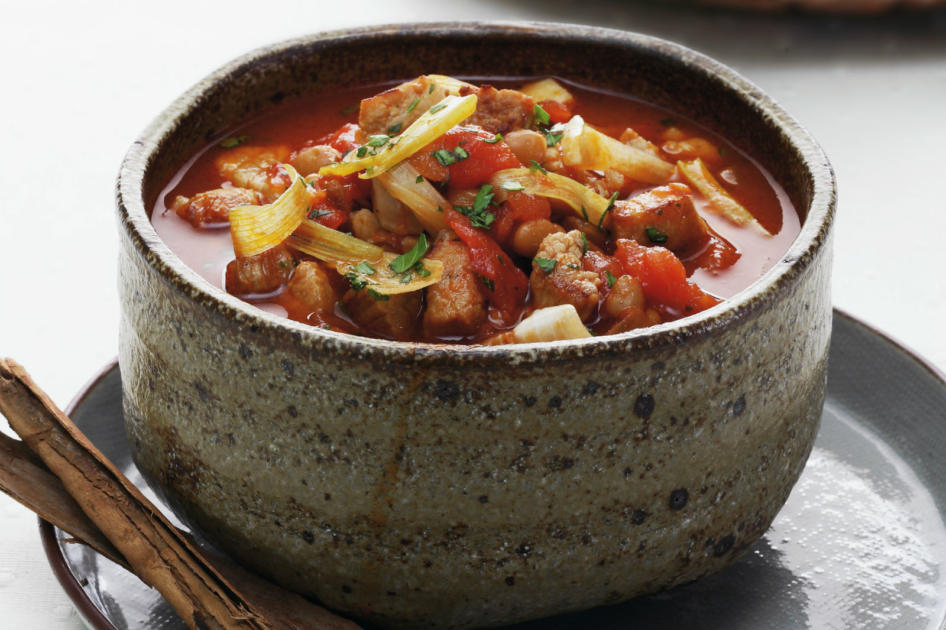
Iran
Iranian Jews keep it simple with black tea, drunk alongside a soft-boiled egg and faloudeh seeb – a refreshing apple-rosewater treat that’s somewhere between a drink and a dessert. Learn more about Persian Yom Kippur traditions here.

Greece
Similar to Iraqi hariri, Greek Jews break their fast on a traditional homemade beverage called pepitada. Made from toasted melon seeds that are blended with water, sweetened with honey or vanilla, and flavored with rosewater or almond extract, this unique concoction is an excellent thirst-quencher. A version of avgolemono chicken soup called sopa de huevos y limon is a Yom Kippur staple, eaten either before or after the fast.

Syria
Syrian Jews, too, opt for the “more is more” approach. Stone fruits feature heavily: refreshing apricot water serves to rehydrate the weary; dried apricots and plums are mixed with rice and ground beef and then stuffed inside zucchinis; sour cherries paired with tamarind make a sweet-sour sauce for meatballs. Others choose to ditch the meat in favor of sambusek, triangular turnovers stuffed with cheese, spinach, or chickpeas.
